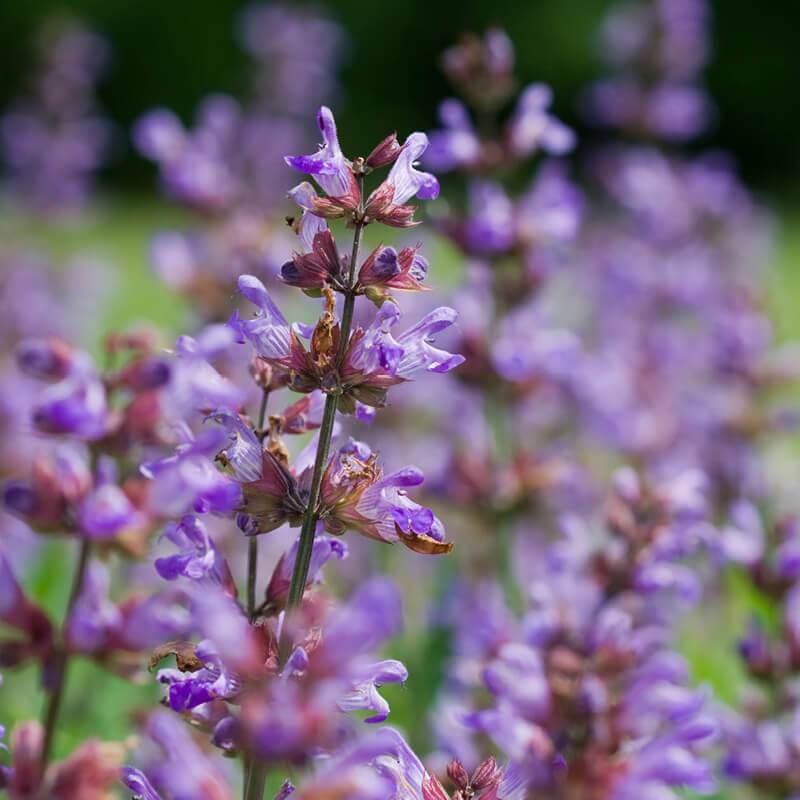
he moment you encounter sage herb, its enticing aroma captures your attention, drawing you closer to its remarkable presence. The vibrant green leaves, elegantly shaped and softly textured, evoke a sense of nature's wisdom. As you explore the history, varieties, health benefits, culinary uses, and even the art of growing your own sage, you embark on a journey that uncovers the remarkable power hidden within this ancient herb. Get ready to be captivated by the magic of sage, as it reveals its secrets and bestows upon you a wealth of flavor and well-being
Table of Contents
- Introduction
- A Brief History
- Different Varieties
- Health Benefits
- Culinary Uses
- Growing Your Own Sage
- Precautions and Side Effects
- Conclusion
Introduction
Sage herb, scientifically known as Salvia officinalis, is a perennial evergreen shrub native to the Mediterranean region. It has been prized for centuries for its medicinal and culinary properties. With its distinct aroma and flavor, sage has found its way into various cuisines around the world and has been used in traditional medicine for its numerous health benefits.
A Brief History
The use of sage dates back thousands of years. It has a rich history rooted in ancient civilizations such as the Greeks, Romans, and Egyptians. The Greeks and Romans believed sage to be a sacred herb with powerful healing properties. It was used to treat various ailments, including digestive issues, sore throat, and memory problems.
Different Varieties
There are several different varieties of sage, each with its unique characteristics and uses. Some popular varieties include:
| Variety | Description |
|---|---|
| Common Sage | The most widely used variety, known for its gray-green leaves and strong flavor. |
| Greek Sage | A smaller, more compact variety with a milder flavor. |
| Pineapple Sage | Distinctive for its pineapple-like scent and vibrant red flowers. |
Health Benefits
Sage is packed with beneficial compounds that contribute to its potential health benefits. Some of the key benefits include:
- Anti-inflammatory properties that may help reduce inflammation in the body.
- Antioxidants that can protect against cell damage caused by free radicals.
- Improved brain function and memory enhancement.
- Antimicrobial effects that may help fight against certain bacteria and fungi.
- Relief from digestive discomfort and improved digestion.
Culinary Uses
Sage is a versatile herb that adds a distinctive flavor to various culinary creations. Its earthy and slightly peppery taste pairs well with both savory and sweet dishes. Here are some popular culinary uses of sage:
- Infused in oils and vinegars to add flavor to dressings and marinades.
- Used in stuffing for poultry, adding depth and aroma to the dish.
- Combined with butter to create a delicious sage butter sauce for pasta or vegetables.
- Added to roasted vegetables or meat to enhance the overall flavor profile.
Growing Your Own Sage
Sage is relatively easy to grow and can be a delightful addition to your herb garden. Here are some tips for growing sage:
- Choose a sunny spot with well-drained soil.
- Start with young sage plants or grow from seeds.
- Water the plants regularly but avoid overwatering.
- Prune the plant regularly to promote healthy growth.
- Harvest the leaves as needed, but avoid excessive harvesting to allow the plant to regenerate.
Precautions and Side Effects
While sage is generally safe for most people when used in moderation, there are a few precautions to keep in mind:
- Pregnant and breastfeeding women should avoid consuming large amounts of sage.
- Individuals with epilepsy should consult their healthcare provider before using sage.
- Allergic reactions to sage are rare but possible. If you experience any adverse effects, discontinue use and seek medical attention.
Conclusion
Sage herb is not only a flavorful addition to various dishes but also a treasure trove of health benefits. Its rich history and versatile uses make it a valuable herb in both the kitchen and traditional medicine. Whether you grow your own sage or purchase it from a local market, incorporating this herb into your life can unlock nature's gift and elevate your culinary experiences.
Remember, moderation is key, and if you have any specific health concerns or questions, it's always best to consult with a healthcare professional.

0 Comments